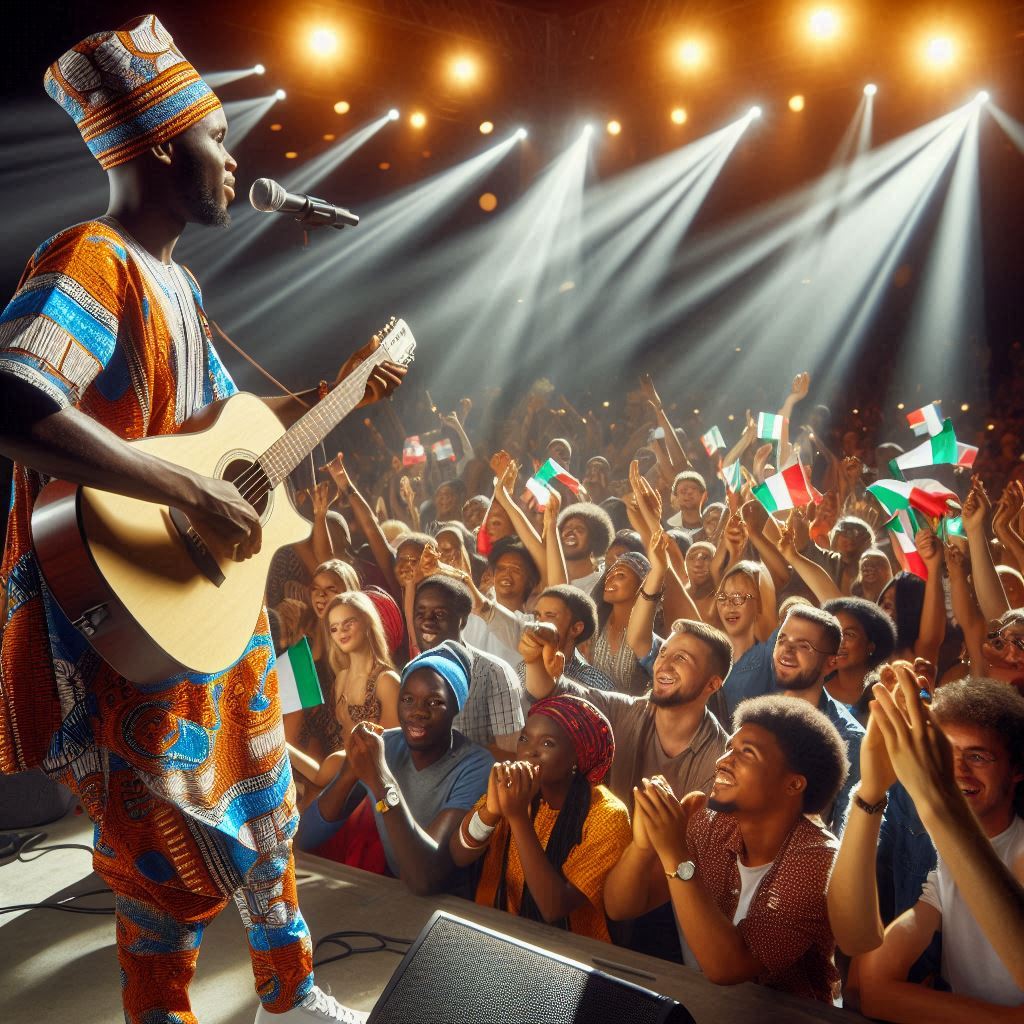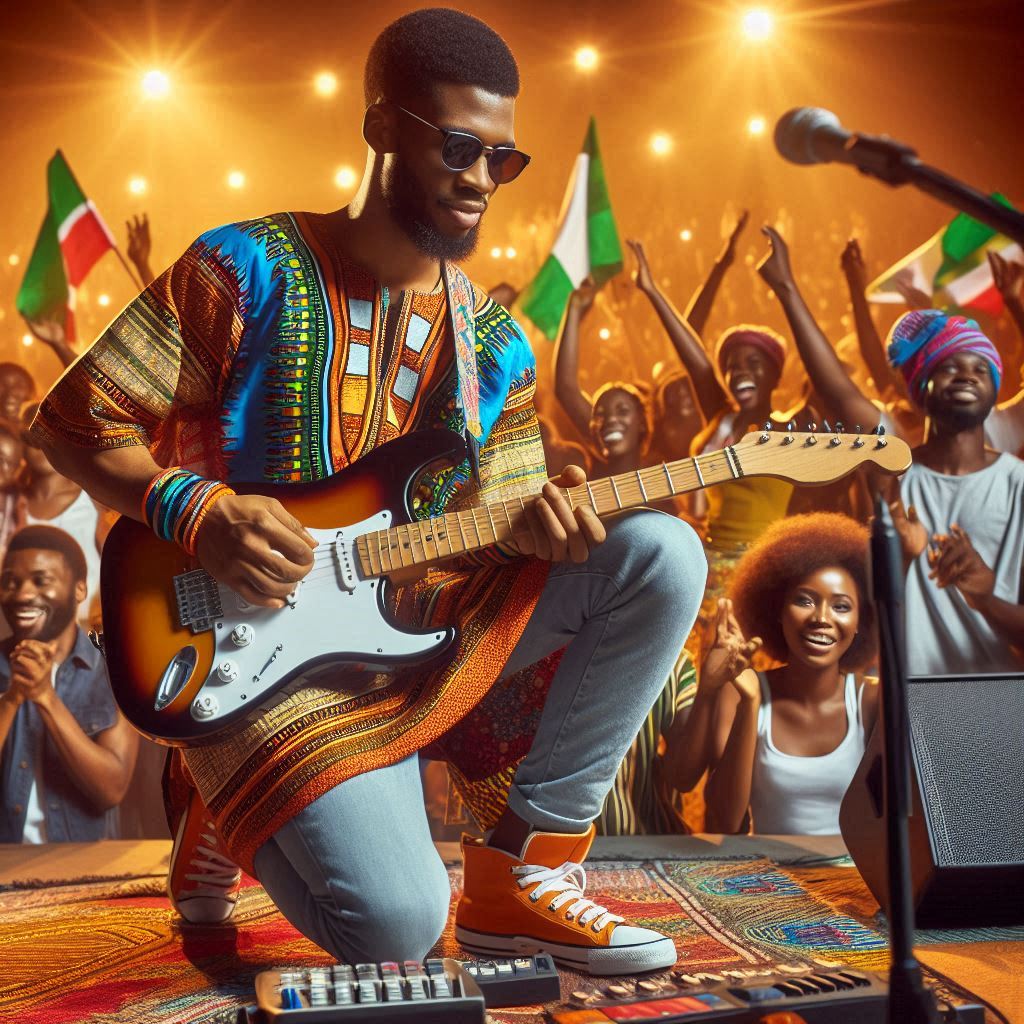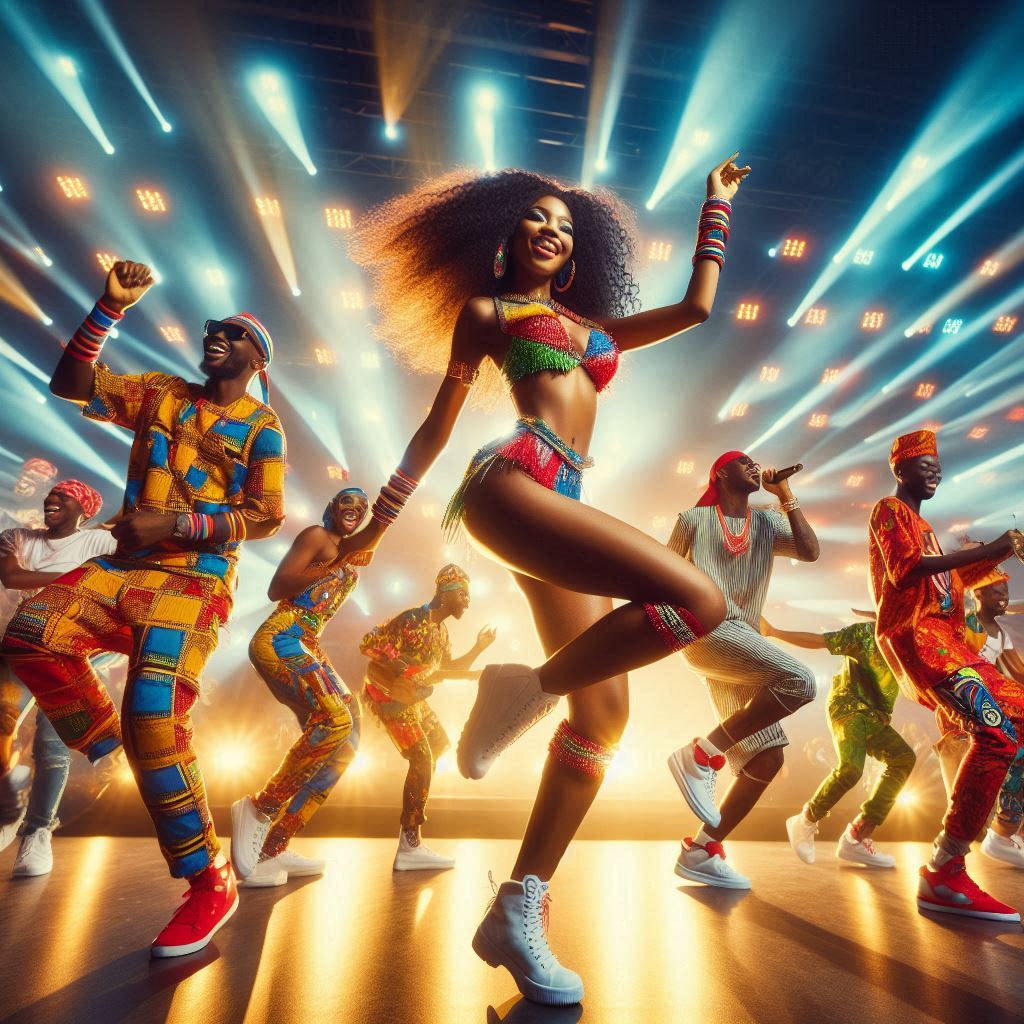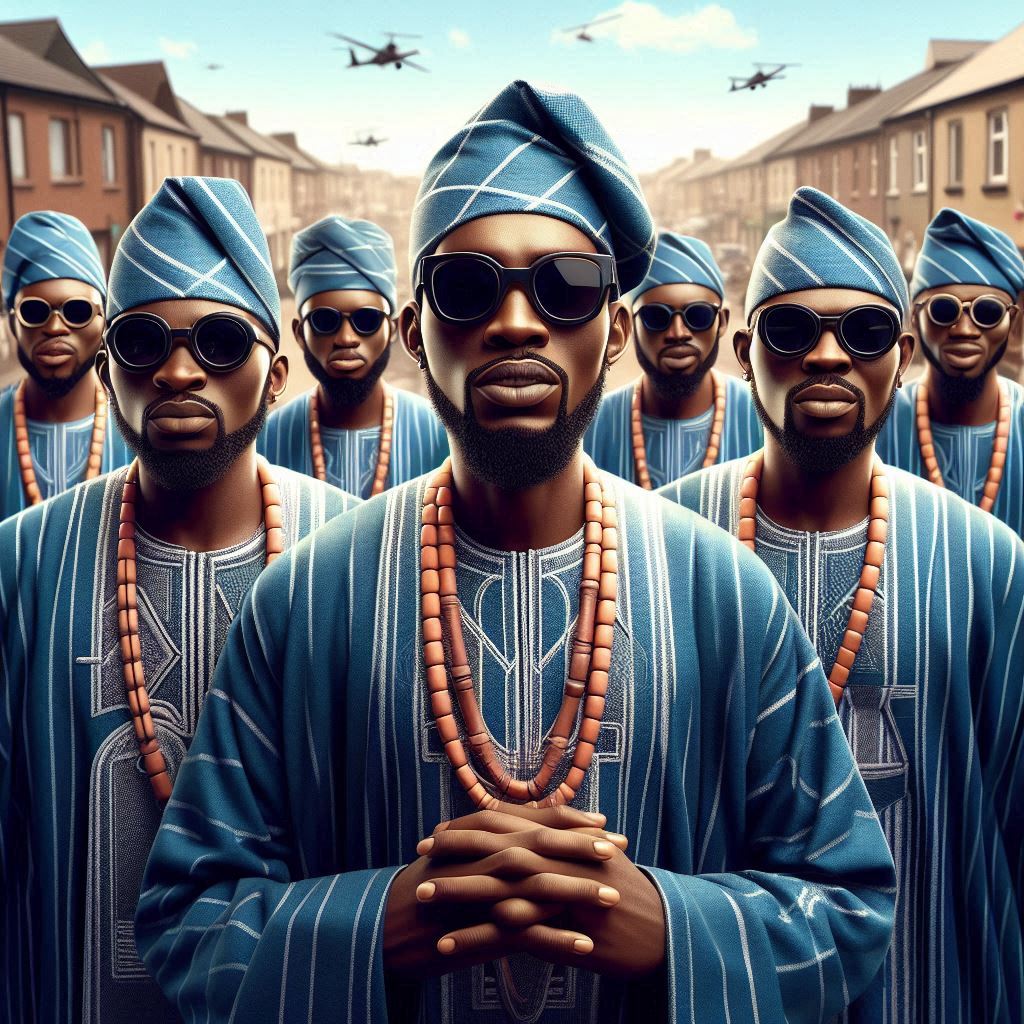Introduction
Music festivals celebrating Nigerian culture showcase the rich diversity and vibrancy of Nigeria’s heritage.
These festivals highlight the country’s unique traditions, rhythms, and sounds, reflecting Nigeria’s multifaceted culture.
The impact of Nigeria’s cultural diversity is evident in the variety of music festivals held across the nation.
From traditional folk music to contemporary Afrobeat, these festivals offer something for everyone.
They provide a platform for artists to perform and share their cultural heritage with global audiences.
In this blog post, we will explore some of the most notable music festivals celebrating Nigerian culture.
We will discuss their significance, the variety of music genres featured, and the cultural experiences they offer.
These festivals not only entertain but also educate and foster a deeper understanding of Nigerian culture.
Join us as we delve into the vibrant world of Nigerian music festivals, celebrating the heart and soul of Nigeria.
The history of Nigerian music festivals
When it comes to music festivals celebrating Nigerian culture, the country has a rich history of vibrant and diverse events that showcase the beauty and creativity of its people.
Let’s explore the origins and evolution of these festivals, as well as some of the most popular and significant ones in Nigeria.
The Origins of Nigerian Music Festivals
Music festivals in Nigeria have a long history that dates back to traditional cultural celebrations and ceremonies.
These events have always been an integral part of Nigerian culture, serving as a means of bringing communities together and celebrating their heritage through music, dance, and art.
One of the earliest music festivals in Nigeria was the FESTAC ’77 (Festival of Arts and Culture), which took place in Lagos in 1977.
This festival brought together artists, musicians, and performers from all over Africa and the diaspora to showcase their talents and promote cultural exchange.
The Evolution of Music Festivals in Nigeria
Over the years, music festivals in Nigeria have evolved and diversified, reflecting the changing cultural landscape of the country.
These events have become more inclusive, incorporating a wide range of musical genres, art forms, and cultural expressions to appeal to a broader audience.
Today, Nigerian music festivals feature a mix of traditional and contemporary music, with artists blending sounds from different genres to create a unique fusion of styles.
These festivals also incorporate other forms of artistic expression such as dance, theater, and visual arts, providing a platform for artists to showcase their talents and connect with audiences.
Popular and Significant Music Festivals in Nigeria
Lagos International Jazz Festival
The Lagos International Jazz Festival is one of the most popular music festivals in Nigeria, attracting jazz enthusiasts from all over the world.
The festival features performances by renowned local and international jazz artists, as well as workshops, masterclasses, and jam sessions for aspiring musicians.
Felabration
Felabration is an annual music festival held in honor of the legendary Nigerian musician Fela Kuti.
The festival celebrates Fela’s life and music, featuring performances by top Nigerian and international artists who pay tribute to his legacy.
Felabration is a vibrant and colorful event that attracts music lovers and fans of Afrobeat music from around the world.
Abuja Carnival
The Abuja Carnival is a cultural extravaganza that showcases the rich cultural heritage of Nigeria through music, dance, and art.
The festival features performances by traditional dancers, musicians, and artists from different parts of the country, as well as a parade and street performances that celebrate Nigerian culture in all its diversity.
Generally, music festivals celebrating Nigerian culture play a vital role in preserving and promoting the country’s rich cultural heritage.
These events provide a platform for artists to showcase their talents, connect with audiences, and celebrate the diversity and vibrancy of Nigerian music and culture.
Read: Psychological Impact of COVID-19 on Nigerians
The cultural significance of Nigerian music festivals
Nigerian music festivals play a crucial role in celebrating the rich traditions, customs, and values of the Nigerian culture.
These festivals provide a platform for artists, musicians, and cultural enthusiasts to come together and showcase the diversity and vibrancy of Nigerian heritage through music.
Celebrating Nigerian traditions, customs, and values
- Music festivals in Nigeria are deeply rooted in the country’s cultural heritage and serve as a way to preserve and promote traditional practices.
- Through performances of traditional music genres such as Juju, Highlife, and Afrobeat, these festivals pay homage to Nigeria’s musical past.
- Festivals like the Lagos International Jazz Festival and Felabration honor iconic Nigerian musicians and celebrate their contributions to the country’s music scene.
Music as a medium to express cultural identity
- Music is a powerful tool for expressing cultural identity, and Nigerian music festivals provide a platform for artists to showcase their unique sounds and styles.
- By incorporating elements of traditional Nigerian music into their performances, artists not only express their cultural identity but also educate audiences about Nigerian heritage.
- From traditional folk songs to modern-day Afrobeat hits, Nigerian music festivals highlight the diverse range of musical influences that shape the country’s cultural landscape.
Impact on promoting cultural diversity and unity in Nigeria
- Music festivals in Nigeria promote cultural diversity by bringing together artists and musicians from various ethnic groups and regions of the country.
- These festivals serve as a melting pot of cultural exchanges, where different traditions and musical styles blend harmoniously to create a rich tapestry of Nigerian music.
- By celebrating Nigeria’s cultural heritage through music, these festivals foster a sense of unity and pride among Nigerians, regardless of their background or ethnicity.
Basically, Nigerian music festivals play a vital role in preserving and promoting the country’s cultural heritage.
They serve as a platform for artists to express their cultural identity, celebrate traditional practices, and promote unity among Nigerians.
These festivals are not just musical events but cultural showcases that highlight the diversity and vibrancy of Nigerian culture.
Read: Psychology and Counseling Services in Nigerian Schools
The diversity of Nigerian music genres showcased at festivals
Nigerian music festivals serve as a melting pot of diverse music genres that showcase the country’s rich cultural heritage.
These festivals provide a platform for both traditional and contemporary Nigerian music genres to be celebrated and appreciated by music enthusiasts from around the world.
Wide Range of Music Genres Represented
At Nigerian music festivals, attendees can expect to experience a wide variety of music genres that reflect the country’s diverse cultural influences.
From the pulsating rhythms of Afrobeat to the soulful melodies of Highlife, there is something for everyone to enjoy.
Popular Nigerian Music Genres
Some of the most popular Nigerian music genres that are often showcased at music festivals include:
- Afrobeat: A genre made famous by legendary musician Fela Kuti, Afrobeat combines traditional Nigerian rhythms with jazz, funk, and highlife influences.
- Highlife: Originating in Ghana and later adopted by Nigerians, Highlife is characterized by its upbeat tempo and distinct guitar melodies.
- Juju: A genre popularized by King Sunny Ade, Juju music incorporates Yoruba folk music traditions with modern influences.
- Naija Pop: A contemporary genre that blends elements of hip hop, R&B, and traditional Nigerian music to create catchy and infectious tunes.
Contribution to the Rich Musical Landscape
The diverse music genres showcased at Nigerian music festivals play a crucial role in shaping the country’s rich musical landscape.
They not only celebrate the country’s cultural diversity but also highlight the creativity and innovation of Nigerian musicians.
These festivals provide a platform for traditional and contemporary music genres to coexist and thrive. They preserve Nigeria’s musical heritage while promoting new styles.
This fusion of old and new creates a vibrant music scene. It captivates audiences in Nigeria and beyond.
Essentially, Nigerian music festivals are a testament to the country’s musical prowess and cultural vibrancy.
The diverse range of music genres at these festivals showcases Nigeria’s rich heritage and talent to the global music community.
From Afrobeat to Naija Pop, these festivals celebrate the past, present, and future of Nigerian music in all its glorious diversity.
Read: How Nigerian Schools Address Student Psychology

The Role of Traditional Instruments in Nigerian Music Festivals
Traditional Nigerian musical instruments play a crucial role in the vibrant and diverse music festivals that celebrate the country’s rich cultural heritage.
These instruments are not only used for entertainment but also serve as a means of preserving traditional customs and traditions.
Significance of Traditional Nigerian Musical Instruments
The use of traditional instruments in festival performances creates a unique and authentic sound that is deeply rooted in Nigerian culture.
These instruments are considered sacred and are believed to possess spiritual qualities that connect performers with their ancestors.
Furthermore, traditional Nigerian musical instruments are a way of passing down cultural knowledge from one generation to the next.
By incorporating these instruments into festival performances, musicians pay homage to their heritage and keep traditional music alive.
Preservation of Cultural Heritage and Traditions
Traditional Nigerian musical instruments are essential for preserving cultural heritage and traditions that have been passed down for centuries.
They are a reflection of the country’s diverse ethnic groups and their unique musical styles.
Through the use of these instruments, Nigerian music festivals showcase the rich tapestry of traditions that exist within the country.
They serve as a reminder of the importance of preserving cultural practices and passing them on to future generations.
Commonly Used Traditional Instruments in Nigerian Music Festivals
- Talking Drum: The talking drum is one of the most iconic traditional instruments in Nigerian music festivals. It is known for its unique sound and ability to mimic the tones of human speech.
- Kora: The kora is a string instrument that is widely used in traditional Nigerian music festivals. It has a melodic and soothing sound that adds depth to festival performances.
- Shekere: The shekere is a percussion instrument made from a dried gourd with beads woven into a net covering. It is commonly used in Nigerian music festivals to create rhythmic patterns.
- Ogene: The ogene is a type of bell that is popular in Nigerian cultural festivals. It produces a loud and resonant sound that is typically used to mark important moments in performances.
- Akuba: The akuba is a flute-like instrument that is used in Nigerian music festivals to create melodious tunes. It is often played during celebratory occasions to bring joy and festivity.
Ultimately, traditional Nigerian musical instruments play an integral role in the unique and vibrant music festivals that celebrate the country’s rich cultural heritage.
These instruments not only add authenticity to performances but also serve as a vital link to Nigeria’s past and a beacon for its future.
Read: Understanding Mental Health Laws in Nigeria
The impact of Nigerian music festivals on tourism and the economy
Nigerian music festivals play a significant role in attracting tourists to the country and boosting the economy.
These vibrant and colorful events showcase the rich cultural heritage of Nigeria and draw visitors from all over the world.
The role of music festivals in attracting tourists to Nigeria
Music festivals in Nigeria serve as a platform to showcase the diverse musical traditions, dance performances, and art forms of the country.
Tourists are drawn to these festivals to experience the unique cultural expressions and immerse themselves in the vibrant atmosphere.
Furthermore, the promotion of these festivals through social media, online platforms, and traditional marketing strategies attracts international attention and encourages tourists to visit Nigeria.
The appeal of witnessing live performances by renowned Nigerian artists and discovering new talents in the music scene also contributes to the influx of tourists to the country.
The economic benefits of hosting music festivals for local communities
Music festivals stimulate economic growth in local communities by generating revenue from ticket sales, merchandise, food vendors, and accommodation services.
The influx of tourists during these events boosts the hospitality and tourism sectors, creating job opportunities and supporting small businesses.
Local artisans, vendors, and entrepreneurs benefit from the increased demand for handcrafted souvenirs, traditional dishes, and cultural experiences.
This not only enhances the economic prosperity of the community but also preserves and promotes indigenous crafts and traditions
How music festivals contribute to the promotion of Nigerian culture on a global scale
Music festivals serve as a platform for cultural exchange and global collaboration.
They showcase the rich tapestry of Nigerian music, art, and traditions to an international audience.
Through live performances, workshops, and interactive sessions, these festivals create opportunities for cultural dialogue and mutual understanding.
Media coverage of these festivals helps disseminate Nigerian cultural heritage worldwide.
It enhances the country’s reputation and attracts cultural enthusiasts, scholars, and artists.
These events fuse traditional and contemporary elements, reflecting Nigerian culture’s dynamic nature and resonating with audiences across borders.
Nigerian music festivals promote tourism and stimulate economic growth.
They showcase the country’s cultural richness on a global scale.
These events celebrate and preserve Nigerian heritage.
They foster cross-cultural connections and dialogue, significantly contributing to Nigeria’s and the world’s cultural landscape.
Conclusion
In closing, music festivals celebrating Nigerian culture are essential for preserving and promoting the country’s rich musical heritage.
These festivals showcase traditional Nigerian music, dance, and art forms, providing a platform for cultural exchange and appreciation.
Attending Nigerian music festivals offers a unique opportunity to immerse oneself in the diverse sounds and rhythms of the nation.
It allows for a deeper understanding of Nigerian culture and fosters a sense of unity and pride among attendees.
By participating in these festivals, individuals help preserve Nigeria’s musical traditions.
They ensure future generations enjoy and learn from this cultural legacy.
Additionally, these events help support local artists and musicians, empowering them to share their talents with a broader audience.
Nigerian music festivals are not just about entertainment. They celebrate and honor the nation’s rich cultural tapestry.
They serve as a vital link to the past while inspiring creativity and innovation in the present.
We encourage everyone to attend Nigerian music festivals to experience the vibrancy, diversity, and authenticity of the country’s musical landscape.
It is a journey worth taking, filled with unforgettable moments and a renewed appreciation for the beauty of Nigerian culture.




